Subscribe to trusted local news
If you are accessing this story via Facebook but you are a subscriber then you will be unable to access the story. Facebook wants you to stay and read in the app and your login details are not shared with Facebook. If you experience problems with accessing the news but have subscribed, please contact subscriptions@thestrayferret.co.uk. In a time of both misinformation and too much information, quality journalism is more crucial than ever. By subscribing, you can help us get the story right.
- Subscription costs less than £1 a week with an annual plan.
Already a subscriber? Log in here.
08
Jun 2024
Did you know that there's a vineyard only 12 miles from Harrogate?
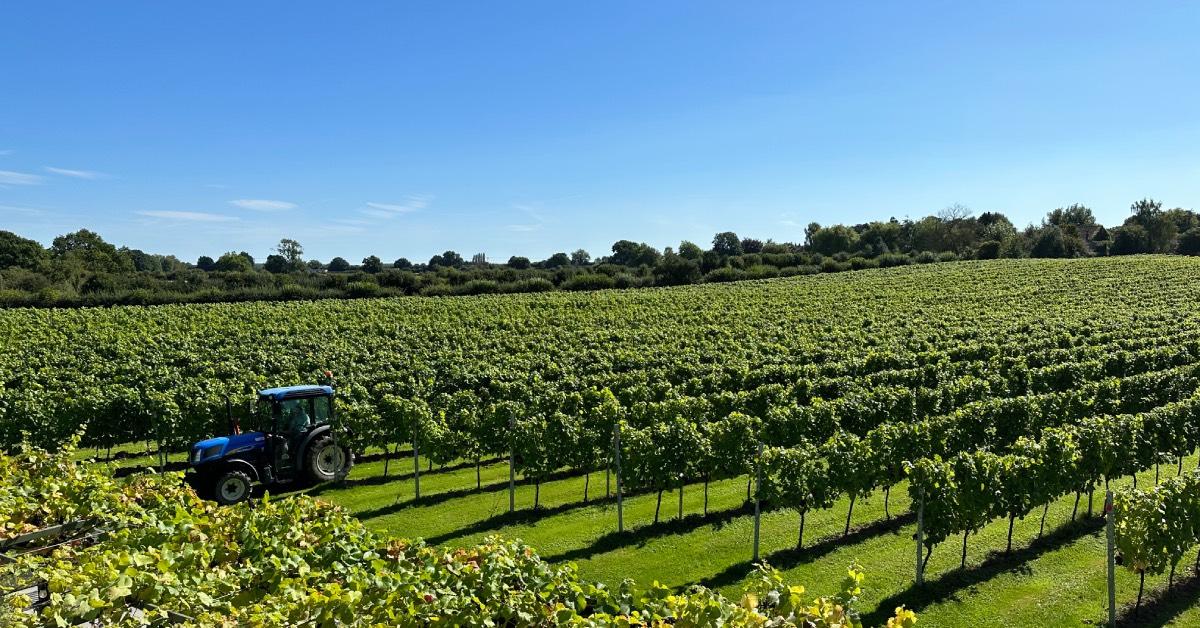
When a colleague told me that there’s a vineyard in North Yorkshire, I couldn’t quite believe it.
After previously living down south for more than 13 years, I had already been aware of the ascent of English wine that has been increasing in popularity year-on-year with the likes of Chapel Down in Kent and Nyetimber in West Sussex.
But my key question was, could vines really grow, and grow well, this far north in one of the UK's most northerly vineyards?
When I arrive at Dunesforde, located in Upper Dunsforth, I’m met by volunteers who are hand numbering bottles of wine.
Indeed, this passionate workforce is a key part of helping to run the operation, especially when it comes to picking grapes from the vineyard’s 6,000 vines.
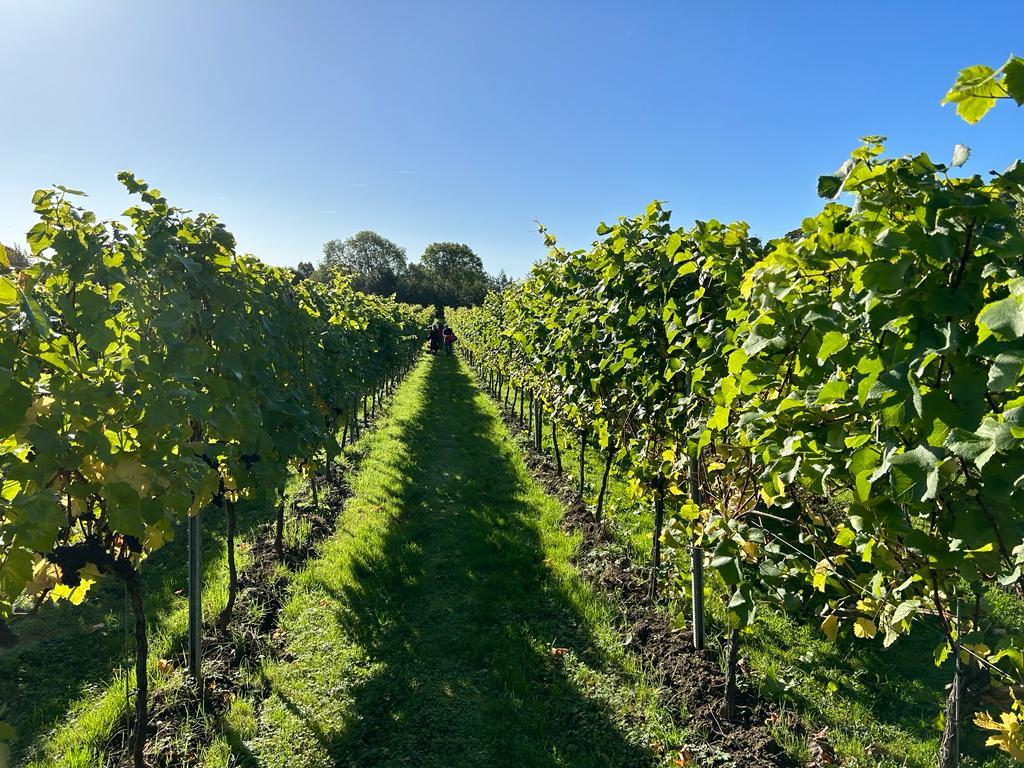
The vineyard at Dunesforde
It’s hard not to feel as though you’ve been transported to the south of France with the rows upon rows of vines here.
Albeit the weather, which at the time of visiting, can only be described as somewhat grey and drizzly; a typical spring day in the north of England.
And so, to my initial question that I pose to owner Ian Townsend; how do the vines grow here?
He explains:
Here our soil isn’t chalk, it’s clay mixed with a bit of sand. And with clay soil, it retains its nutrients.
The wine we produce is more like what you would find in New Zealand rather than in the south of England or France.
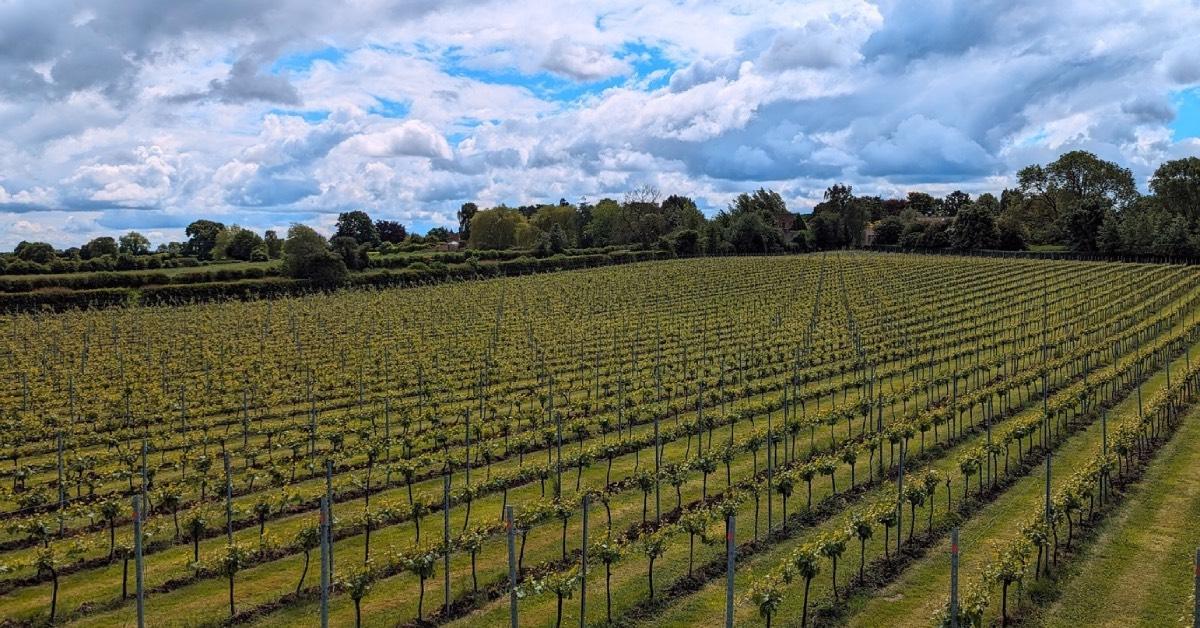
When it came to searching for a location in which to start their vineyard, Ian and his eldest son James – who was the instigator in creating the family-run business – initially searched for a site in Tuscany.
However, when they crunched the numbers, they figured out it wouldn’t have been commercially viable, given how cheaply wine can be bought in the shops there, whereas the Townsends wanted to create lower volume but higher quality vintages.
And so, they started their search across England. Yet as fate would have it, the site was a lot closer to home than they’d thought.
Incredibly, the land that backs onto where they have lived for more than 30 years became available.
Ian says:
It slopes slightly – but that works to our advantage as it helps to drain water – and it is sheltered by trees.
This means that it's a degree or two warmer than surrounding areas – this is vital this far north; relatively low rainfall during the vines' growing season make the vines work hard, helping produce more complex flavours in the fruit.
We are also only 60ft above sea level here, which is the same as Bordeaux.
After receiving experts’ advice, they chose the vine varietals and root stock to match the soil and climate, planting the first vines in 2016.
Home to four grape varieties, all carefully selected due to their suitability of the northern location – Bacchus, Solaris, Pinot Gris and Pinot Noir Précoce, Dunesforde now produces white, red, rosé and sparkling wines.
Its first harvest was in 2019, which was released the following year.
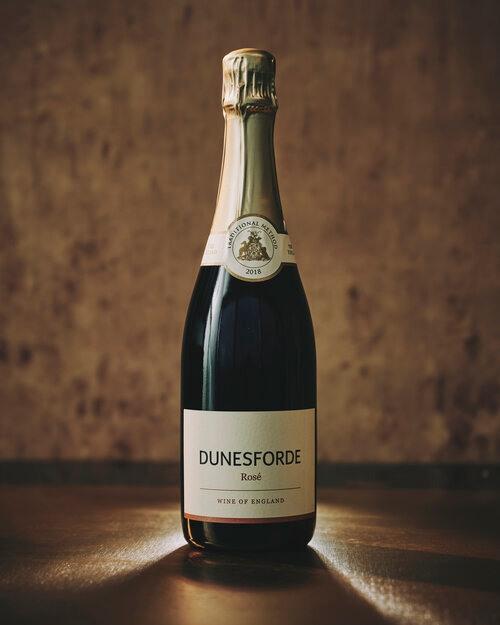
Dunesforde wine isn’t yet made on site. Instead, the grapes are sent to Halfpenny Green in Staffordshire. This isn’t unusual though – Halfpenny Green makes wine for approximately 90 vineyards.
This works to Dunesforde's advantage as it takes out a huge part of the upfront costs of the equipment and means that it can benefit from the expertise of the skilled processors from Halfpenny Green.
But, down to business, where does the team behind Dunesforde see it in the future?
Ian says:
The idea of the vineyard is to create a family business that’s sustainable commercially so that it can be passed down through the generations.
Instead of selling wine through mainstream traditional channels such as supermarkets, Dunesforde’s approach is much more selective.
After all, it has to be, as its vines on a good year can create up to 15,000 bottles, which is not exactly huge in terms of winemaking.
As well as selling its vintages directly from the vineyard and online, it also partners with restaurants such as The Box Tree in Ilkley, Aldwark Manor and Goldsborough Hall, as well as providing the sparkling wine for events such as classic car show Yorkshire Elegance, which this year is being held at Grantley Hall in July.
Its wine tours and tastings, along with its recent food and wine fair where people were laid out on picnic blankets among the vines, are also popular.
During the winter Dunesforde invites guest speakers such as former journalist Peter Davenport and motivational speaker Steven Robinson to talk while customers savour its wine.
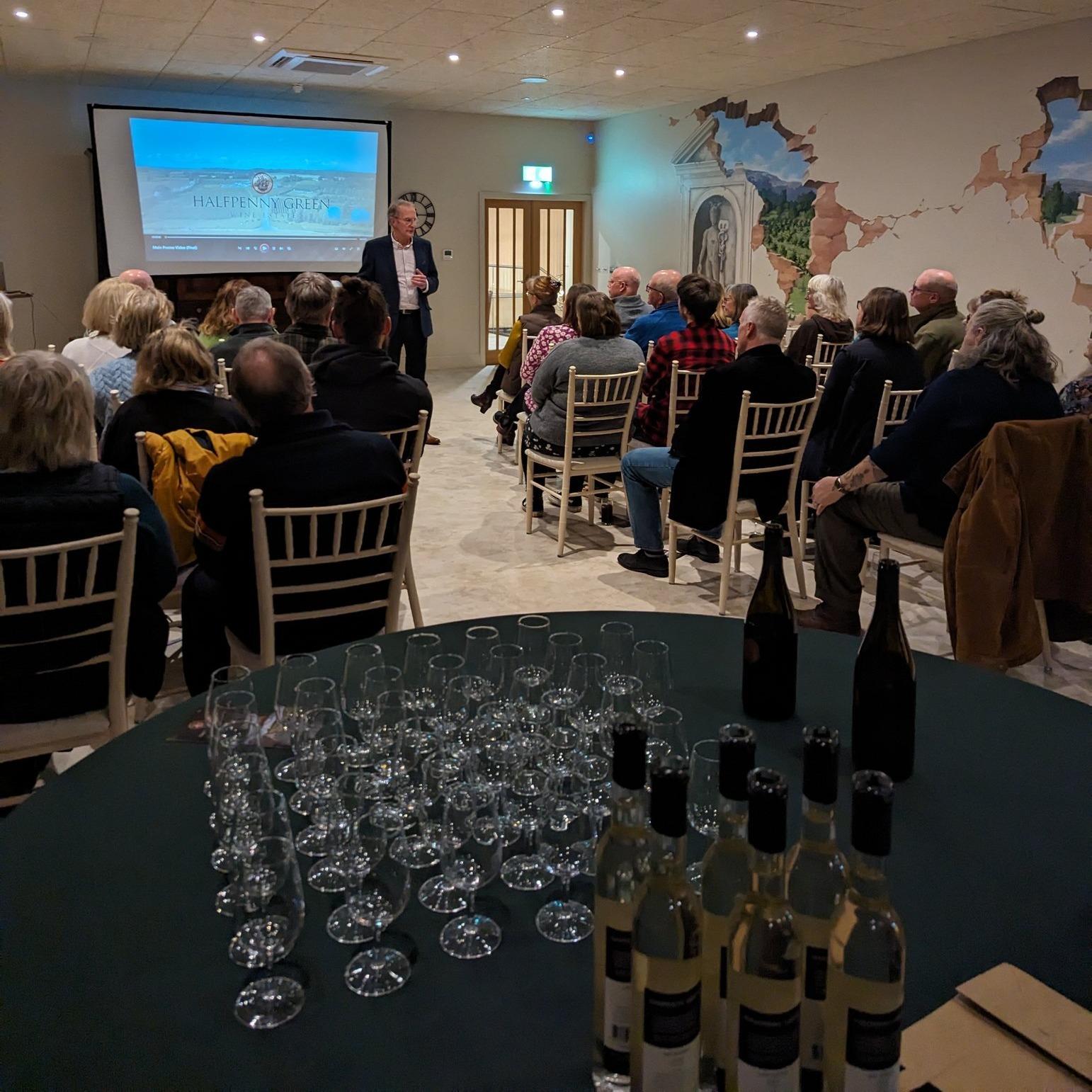
Guest speaker Martin Vickers from Halfpenny Green
Plus, there are further inventive ways in which it raises awareness of the vineyard and shout about its Yorkshire wine.
Take its guest chefs, for example. Diners can feast on a tasting menu with paired wines in the Roman room that overlooks the vines and features hand painted murals by Lynn Ward, an artist from nearby Leyburn.
With Yorkshire in mind, what does it see in terms of the local competition?
After all there’s a growing number of vineyards in the region – currently, and somewhat surprisingly, there are approximately 16 commercial vineyards in Yorkshire.
Ian describes:
We actually help and support each other.
Without Yorkshire Heart, we wouldn’t have been able to make our first harvest as they helped us with some of the equipment.
From the very first harvest that was only five years ago – a drop in the ocean in terms of timeframes in winemaking – Dunesforde that also comprises Ian’s wife and their three children has come a long way from looking for land to its first bottle, grown from their very own backyard.
And it’s just won a silver medal at the International Wine Challenge.
Cheers to that.
0